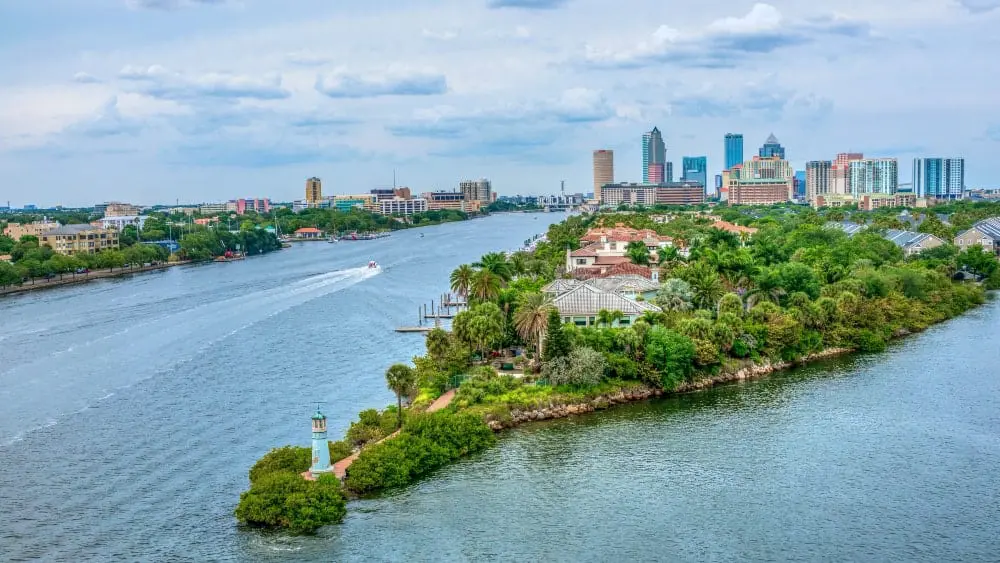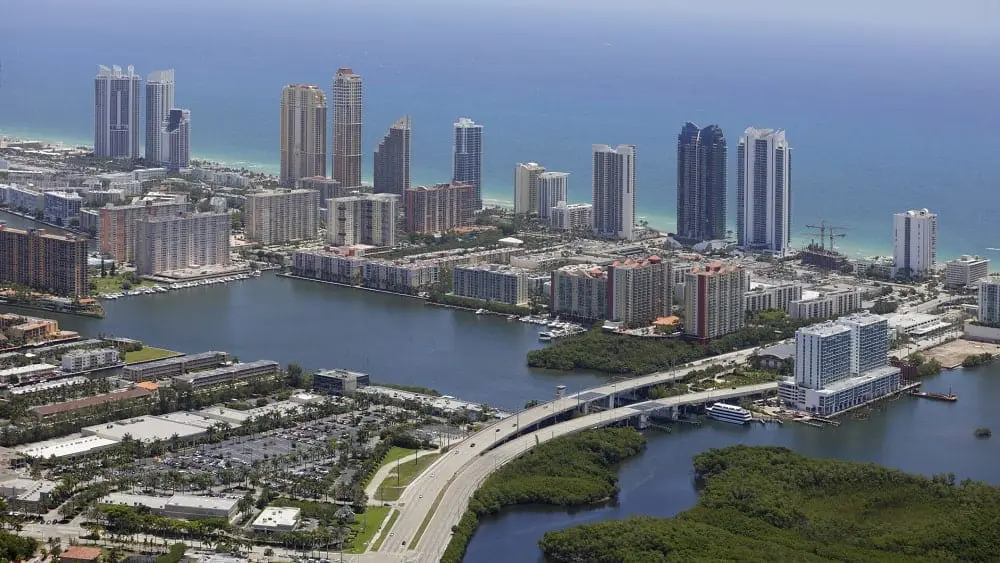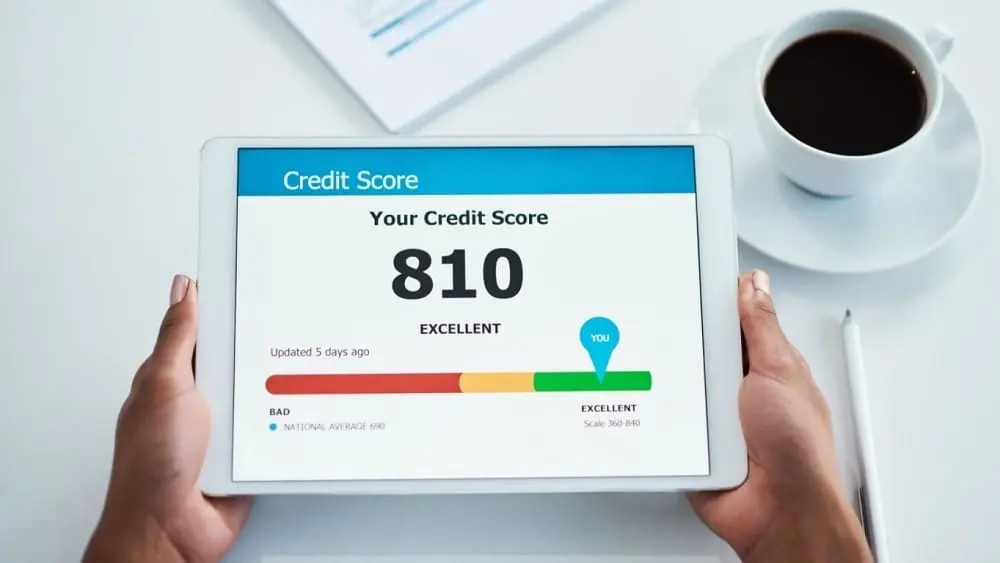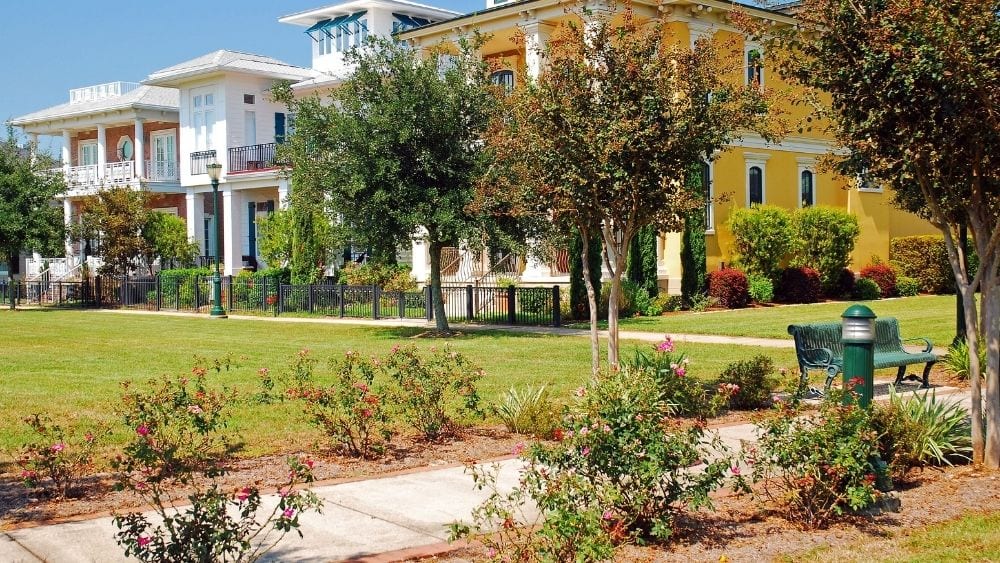
Year-round warm weather, plenty of good food, culture and entertainment on your doorstep, and a low cost of living compared to other states – there are countless reasons why life in Florida is top-notch. Are you a homebuyer purchasing your dream home in the Sunshine State?
Many homeowners may be so anxious to buy a home they overlook saving for a down payment. If your new home is in Florida, be prepared for sticker shock; the state’s closing costs are some of the most expensive in the country.
So what are homebuyers shelling out for closing costs?
In a nutshell, closing costs are an umbrella term, encompassing all the fees homebuyers will need to pay on closing day before securing the keys to your new home. Whether you’re moving across town or country, it takes a village to help you buy your home: you’ll need a lender, lawyer, appraiser, home inspector, and insurance provider.
Instead of paying each of these service providers individually, these expenses are lumped together in a single bill. As a rule of thumb, closing costs typically amount to two to five percent of your home’s purchase price, paid alongside your down payment, making for one expensive day of shopping!
If you’re curious about closing costs in Florida, here’s our guide to how much you should be saving, a breakdown of what’s included, and how homebuyers in the Sunshine State can shave off thousands of dollars on this expense.
How Much are Closing Costs in Florida?

Closing costs in Florida are, on average, $8,554 for a home priced at $375,368, according to a 2022 report by ClosingCorp, which provides research on the U.S. real estate industry. That price tag makes up 2.3 percent of the home’s price tag.
The Sunshine State has the eighth most expensive closing costs in the country, behind District of Columbia, New York, Pennsylvania, Washington, and Connecticut, based on ClosingCorp data. For comparison’s sake, homebuyers in D.C. spend $29,888 on closing costs – or 3.9 percent of their home’s purchase price – while the national average is $6,907.
But homebuyers in Florida should count on spending far more than this estimate. ClosingCorp’s data is based on a homebuyer applying a 20 percent down payment, eliminating the need for private mortgage insurance. Coming up with this amount upfront may not be viable for all homebuyers, so you’ll need to factor in PMI. This is about 0.25 percent but can be as high as 2.25 percent of your home loan, depending on the size of your down payment and credit score.
ClosingCorp also didn’t take state-specific expenses into account. In Florida, homebuyers will need extra insurance policies to protect against tropical storms, for example.
Home values have also increased in this southernmost state. According to the state’s largest trade association, Florida Realtors, the median sales price for a home was $602,558 in May 2022, while the average sales price sat at a whopping $522,825. If homebuyers are aiming to pay two to five percent of their home’s purchase price on closing costs, you can expect to pay between $7,020 and $10,456 based on those price points.
Closing costs will fluctuate greatly depending on the price of your home and the complexity of the sale.
What’s Typically Included in Florida Closing Costs?
While most states have uniform policies when it comes to closing costs, Florida has its own set of nuanced rules. From securing your loan to obtaining keys to your new property, there are a lot of moving parts involved leading up to closing day.
Here’s a closer look at the bill breakdown for Floridians, including the state-specific details:
Loan Origination Fees
Unless you have the cold hard cash to buy your home outright, it’s safe to say the first stop you’ll make to start your homebuying process is to your lender. Whether you’re working with a bank or a mortgage lender, loan origination fees will likely be one of the first costs you’ll incur.
Loan origination fees are what your lender charges you to open a mortgage account. It includes everything from setting up your home loan application, conducting an underwrite and pre-approval, and processing your funding at closing.
Homebuyers should estimate this cost at roughly 0.5 to one percent of your loan amount. Let’s take Tampa as an example. As of June 2021, home prices there were about $230,781. In this case, loan origination fees could be somewhere between $1,153 and $2,307.

Credit Report Fee
Just like when you apply for a credit card, automobile, or personal loan, your lender will need to perform a thorough credit check to make sure you’re a responsible borrower. Part of this is pulling your credit score to have a closer look at how you’ve managed your existing debts.
Your lender will bill you for the full cost of requesting your credit report. In Florida, this could cost up to $200 for you, and anyone else on the mortgage application.
Attorney Fees
While in some states, it’s mandatory to hire a real estate attorney to help with your closing, this clause doesn’t apply to Florida. This doesn’t mean you shouldn’t recruit the help of a lawyer, though – in some cases, your real estate agent or lender may insist on it, especially if you’re dealing with a tricky home sale, such as buying a foreclosed home or purchasing from out-of-state.
You can rely on an attorney to help with the legal aspects of your home purchase, from drafting your purchase agreement, certifying deeds, and reviewing your title examination, title insurance policy, and any other documentation.
Escrow Fees
In Florida, title companies work closely with real estate attorneys. Both your lawyer and title company will guide you through the homebuying process to make sure you close on time without any delays.
One of the key things your title company will do is set up a neutral third-party account to hold onto your funds in an escrow account, such as your earnest money deposit. Your seller (and the various vendors you’ve hired) won’t receive any funds until both parties have met all their conditions on the home sale, and the ink is dry on the property transfer.
Your title company will also help you with the things you need to complete. On closing day, your title company will meet with you and your seller to sign off on the final bits of paperwork and hand over the keys.
In Florida, this is typically an expense to be paid by the buyer, but can be a shared expense.
Florida Title Search
A crucial job you’ll enlist your title company to take on is the title search. In a nutshell, your title company will conduct a thorough search on your potential new home to verify the seller’s right to transfer ownership to you. They’ll look through historical records like deeds, court records, property and name indexes, and other record-keeping to make sure the land you’re buying has no outstanding ownership disputes, unpaid taxes, judgments, or lawsuits in progress.
As you can tell, this is a make-or-break step in the homebuying process, whether you’re buying a new build or an existing home. In Florida, title searches cost anywhere from $150 to $1,500, depending on the complexity of the research. Your title company is sifting through records dating back to the past few decades, after all.
In Florida, the title search is typically the seller’s responsibility, but depending on negotiations, it could end up in the hands of the buyer. You’ll see this fee as a separate line on the Settlement Statement.
Florida Title Insurance
Once your title company completes its search, you’ll need to follow up with a title insurance policy. In this case, title insurance protects you in case something is overlooked during the initial search and there are other claims on your property. Sometimes this could come in the form of a previous owner omitting their marital status, resulting in a legal spouse claiming the home, or other incidents like fraud, forgery, or even clerical errors.
The title insurance covers your back, including paying all court costs and related fees, should something go awry.
Florida’s title insurance premiums are based on a home’s purchase price. For example, homes that are priced in excess of $100,000 come with premiums of $5 per thousand dollars. Homes with purchase prices of less than $100,000 have premiums of $5.75 per thousand dollars.
While most insurance policies are paid annually, title insurance is paid just once at closing. It can’t be transferred over to the next buyer, however.
In most cases, your lender will require you to purchase a title search and title insurance before they fund your home loan.
Things get a bit muddy when determining who pays for title insurance in Florida. In most counties, it’s the seller who chooses the title company and pays the title insurance.
There’s an exception to this rule: if you’re a homebuyer in Sarasota County, Collier County, Miami-Dade County, and Broward County, you can decide on the title company but you’ll also have to pay for the title insurance at closing.
Florida Real Estate Transfer Tax
Floridian homebuyers are about to get acquainted with a variety of taxes, with real estate transfer taxes ushering in the way. Across the country, homebuyers in all but 13 states must account for “real estate transfer taxes” in their closing costs.
Real estate transfer taxes are local and state government taxes that are paid when the seller transfers the property to the buyer. This expense can be listed as a deed, tax, mortgage registry tax, real estate conveyance tax, or “documentary stamp tax,” which is what it’s most often called in Florida.
The documentary tax stamp rate is standard across Florida at $0.70 for every $100 of the home’s purchase price. The only exception is Miami-Dade County, where the rate drops to $0.60 per $100. If you’re buying a home in the state for $250,000, the stamp tax would be $1,750, while in Miami-Dade it would be $1,500.
In Florida, the transfer tax is usually paid by the seller. But keep in mind, this isn’t a hard and fast rule as both parties may negotiate other concessions. You could pay for this expense and then ask your seller or builder for leeway on other costs.
Property Taxes
This is another tax that Floridian homebuyers need to consider. The median property tax in the Sunshine State is $1,773 per year for a home worth about $182,400. Counties charge about 0.97 percent of a home’s assessed fair market value in property taxes each year.
Florida ranks in the middle of the pack, 23rd out of 50 states, when it comes to the average amount of property taxes collected.
For comparison’s sake, New Jersey has some of the nation’s highest property taxes at 2.49 percent. On a $217,500 home, you’d be paying $5,419 annually.
Count on paying for this expense, prorated, at closing, and then annually, so watch out for due dates.
Homeowner’s Insurance
Your lender will have a lengthy list of requirements you’ll need to fulfill before they transfer over your mortgage funds. At the top of the list is often homeowner’s insurance. You must have your insurance policy in effect and paid for the upcoming year before you move in.
It’s an essential buy for your peace of mind, too. Homeowner’s insurance covers any physical damage to your home caused by fire, wind, vandalism, or theft.
Do your homework on extra insurance policies you’ll need to tack on, especially if you’re in counties that are at risk of coastal flooding, storm damage, and other extreme weather events. You need to check that the insurance you’re buying will protect you financially against any damages caused by natural disasters that aren’t covered in your standard policy.
It’s worth noting that both property taxes and homeowner’s insurance are “prepaid expenses”, which means they must be paid on closing day and can’t be financed.
Surveying Fee
ClosingCorp says Florida and Texas are the only states in which land surveys are mandatory for single-family homes.
A surveyor is hired to establish the precise borders of your potential new home. Ideally, their work matches up with what you’ve been sold, but sometimes a survey may reveal that the property is larger or smaller than assumed.
A survey could cost up to $800 in Florida, depending on the size of your property.

Appraisal and Home Inspection
There are two other major checkpoints your lender will require you to clear before they process your home loan:
In both instances, your lender just needs to know that they’re lending you the cash for a solid, worthy investment.
First, your lender will send a third-party appraiser to scope out your potential home to ensure it’s priced at the right value. If you default on your mortgage and your lender forecloses on your home, they need to know they can sell the property and recoup their costs.
The appraiser will scan the home, its size, its features, its condition, and how it stacks up to homes priced similarly in the community, to determine its fair market value.
Once you clear this hurdle, you’ll need to recruit a home inspector who will focus on the nuts and bolts of your home. He or she will scan everything from the foundation to the roof to the water pipes and septic system, and everything in between.
Your home inspector will flag key issues that already exist or may surface in the coming years. With this intel, you could ask your seller to knock the price point down to factor this in – or make repairs before finalizing the deal.
Whether it’s you, your lender, or your lawyer who insists on either of these steps, you’re responsible for the bill. In Florida, appraisals could cost about $500, on average, while home inspections could be between $300 and $500. Again, count on these estimates to vary depending on where you live, and the size of your home.
Private Mortgage Insurance
For most homebuyers – especially first-timers – private mortgage insurance may be required. If you aren’t providing a 20 percent down payment, your lender will require you to buy PMI in Florida. PMI allows borrowers to qualify for a conventional loan, even if you put down only five to 19.99 percent.
To be clear, while you’re the one paying for the insurance, the coverage is for your lender; because you haven’t put down 20 percent, PMI protects your lender in case of loan default.
This cost isn’t included in the ClosingCorp tally of closing costs expenses, but PMI typically ranges from 0.25 percent to as high as 2.25 percent of your outstanding loan balance, depending on the size of your down payment and credit score.
How Can I Lower My Closing Costs in Florida?

Getting on the property ladder is a costly endeavor. Between the down payment and new furniture, the last thing you want to worry about is saving a large sum of money for closing costs.
If you’re looking for ways to lower your overall closing costs bill, here’s a look at key strategies that could save you thousands:
Closing Cost Assistance
Making use of homeownership assistance programs in Florida is the single most efficient way to make the biggest reduction in your closing costs bill.
Homebuyers in Florida should start with the Florida Housing Finance Corporation (FHFC), which has a series of statewide assistance programs that include providing 30-year, fixed-rate mortgages set at a low interest rate and with reduced mortgage insurance to boot.
But there are two programs to zero in on: the FHFC Florida Assist Loan Program, which provides up to $7,500 in the form of a zero percent interest second mortgage to help with closing costs and your down payment. In this case, it’s a “silent mortgage” meaning you don’t have to pay back a cent until you decide to sell, refinance, or transfer the deed to your home.
There’s also the FHFC HFA PLUS Second Mortgage, which provides a zero percent five-year loan to help with your closing costs and down payment. In this case, the loan is forgiven at a rate of 20 percent a year over a five-year term. That means if you reside in your home for the full five years, you aren’t required to repay the loan.
Get Your Finances in Shape
Another way to dramatically lower your closing costs expenses is to get your finances in great condition, with a high credit score and savings in the bank.
With a great credit score, you could secure a lower interest rate on your home loan, saving you thousands of dollars over the lifetime of your mortgage.
And with savings in the bank, the closer you get to the 20 percent down payment threshold, the less you’ll have to cough up in private mortgage insurance.
Make sure your credit score is as high as possible: don’t skip any payments on your existing debts, and try to keep your debt-to-income ratio low before you make your case to lenders.
Comparison Shop
Whether you’re shopping for the best interest rate on your mortgage or looking for a reputable title company and real estate attorney, savvy homebuyers take their time to comparison shop to obtain quotes from different providers.
Check out referrals from your lender or title company, too. They could have go-to professionals on hand that they’ve approved with discounts for referrals.
But don’t let price be the ultimate decision-maker. Take stock of reviews from former clients and compare them to competitors. After you do your homework, you’ll feel more comfortable, knowing which providers should give the best deal.
Seller Concessions
Across the board in Florida, there are no concrete rules on who pays for which closing costs. With this in mind, there may be more room for negotiation when you’re dealing with your seller, especially if they’re trying to close the deal and you’re in a buyer’s market.
Buyers can ask sellers to pay for some – or all – of their closing costs. If the home you’re eyeing is priced at $250,000, you may submit a full price offer with a caveat that your seller covers all $3,000 of your closing costs, for example.
You could offer to pick up the tab for escrow fees if your seller pays your transfer taxes. In other instances, you could ask your builder to pay your closing costs so you can, in turn, buy upgrades on a brand-new model home.
In other words, there are a handful of different scenarios you could try to reassign some of the closing costs to the seller.
Negotiate Fees
When your lender sets up your loan, you’ll receive a Closing Disclosure form, outlining every service and fee you’ll pay on closing day. Don’t just file this paperwork away to worry about later – do an inventory check so you understand and agree to the charges you’re incurring.
By closing day, the form should be updated. Your job is to check for discrepancies, an increase in fees, or new surprise charges. Don’t be afraid to question or push back on any disparities.
Consider your relationship with your lender, too. Are you a repeat customer who uses multiple loan products? If you’ve been a responsible and loyal borrower, you could ask your lender to omit certain expenses. The most obvious charges you can try to eliminate are fees that are often labeled as “junk fees,” such as rate lock fees, loan processing fees, and broker rebates.
You could also ask your lender to stagger these expenses, so they’re paid during the homebuying process in stages instead of all at once at closing.
Adding Closing Costs to Your Home Financing
If you don’t have the upfront cash to cover your closing cost expenses, you may be able to roll this cost into your home loan. This means you’re off the hook for paying for these expenses on closing day, but you’ll make up for it via monthly mortgage payments that will be a bit higher. Ultimately, you’re paying interest on the closing costs tacked onto your first mortgage.
Check with your lender to see if this option is available. Remember, not all closing costs can be included because some must be paid upfront.
No-Closing-Cost Mortgages
Some homebuyers can opt into a “no-closing-cost” mortgage as a strategy to keep this expense at a minimum. In this case, your lender agrees to pay for part or all your closing costs, but you in turn pay a higher interest rate.
In the long run, this could cost you more money because of the bump in your interest rate; but for some homeowners, it may be their best choice.
Other Florida Resources

Carmen Chai is an award-winning Canadian journalist who has lived and reported from major cities such as Vancouver, Toronto, London and Paris. For NewHomeSource, Carmen covers a variety of topics, including insurance, mortgages, and more.
 The 10 Best Places to Retire in Florida
The 10 Best Places to Retire in Florida